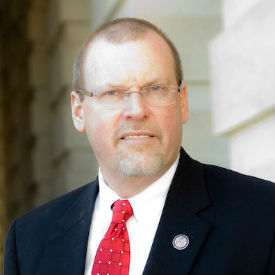
Regular readers of this column likely know my position on marijuana. I support legalizing it for medicinal use but oppose legalization for recreational purposes. The most important matter now on the table is not marijuana itself. The issue is how marijuana affects the overall rule of law in our country.
The Controlled Substances Act, passed by Congress in 1970, prohibited the cultivation, distribution, and possession of marijuana (albeit with a few limited exceptions). That law remains on the books.
Notwithstanding the law on the books, the Obama Administration decided to relax its enforcement of this law. The Obama Administration did not ask Congress to change the law. This was true even when the Democrats controlled both branches of Congress. Further, the Obama Administration had the opportunity to have its Drug Enforcement Agency place marijuana as a scheduled drug, thus making it available for medicinal use, but it declined to do so. Its failure to consider easing the law relating to medicinal marijuana was confusing in light of its lack of enforcement of marijuana laws otherwise.
Not enforcing any law and looking the other way breeds disrespect for the rule of law generally. In this case, some states opted to decriminalize or even legalize marijuana, certain that their citizens would not suffer significant repercussions.
Now U.S. Attorney General Jeff Sessions has announced that he will enforce the federal law on marijuana, even in states where it has gained acceptance.
The problem is the Justice Department and the administrative branch of government do not write federal laws; they are simply supposed to enforce them. Accordingly, while Attorney General Sessions’ decision is right under the rule of law, the decision will cause havoc in states that significantly loosened their restrictions on marijuana, due to previous administrations’ policy of non-enforcement.
This situation shows how important it is that we abide by the separation of powers established in our Constitution. When presidential administrations make up the rules, as the Obama Administration often did, those rules can easily be undone by a different administration. Having studied law and history since I was in middle school, it is clear that once a society begins to believe laws are inconsistent and/or arbitrary, society loses its respect for the rule of law. And loss of respect for the rule of law creates chaos and can lead to anarchy.
In the case of marijuana, we need a consistent national policy. It is Congress’ job to write the laws, and it is time for Congress to reexamine marijuana policy. Congress and the nation as a whole need to debate the pros and cons and come to a consensus that provides clarity and stability on marijuana policy going forward.
Congress could opt to allow only true medicinal marijuana, as I would prefer. Or Congress could choose to let the respective states decide, as Rep. Tom Garrett (R-VA-5) has proposed. Further, Congress could legalize recreational use of marijuana. I would oppose that proposal.
However, if Congress reaffirms prohibitions on recreational marijuana, I think fairness and equity require a grace period in states that loosened their restrictions. Criminal sanctions should not apply on past acts that appeared to the average citizen to be legal. Doing otherwise would appear arbitrary and capricious to society at large. And the states and their citizens should have time to adjust to any new, clear national policies.
As the lawmaking body, Congress must set consistent policies for national questions that establish clear and stable rules for States and individuals.
The Congressional Award
On January 4, I was honored to present Luke Beasey of Bristol with the Congressional Award, Congress’ highest award for youth. Luke volunteered over a thousand hours as an EMT with the Washington County Life Saving Crew. He also took flying lessons, earning a solo permit, and planned an extensive family trip.
The Congressional Award recognizes young people who have set and achieved challenging goals for themselves in the areas of service, personal development, fitness, and citizenship. In doing so, they cultivate the character and skills that will prepare them to lead our country into the future. The program is open to all young people between the ages of 13 ½ and 24. For more information on the award, including registration, please visit congressionalaward.org.
If you have questions, concerns, or comments, feel free to contact my office. You can call my Abingdon office at 276-525-1405 or my Christiansburg office at 540-381-5671. To reach my office via email, please visit my website at www.morgangriffith.house.gov.










